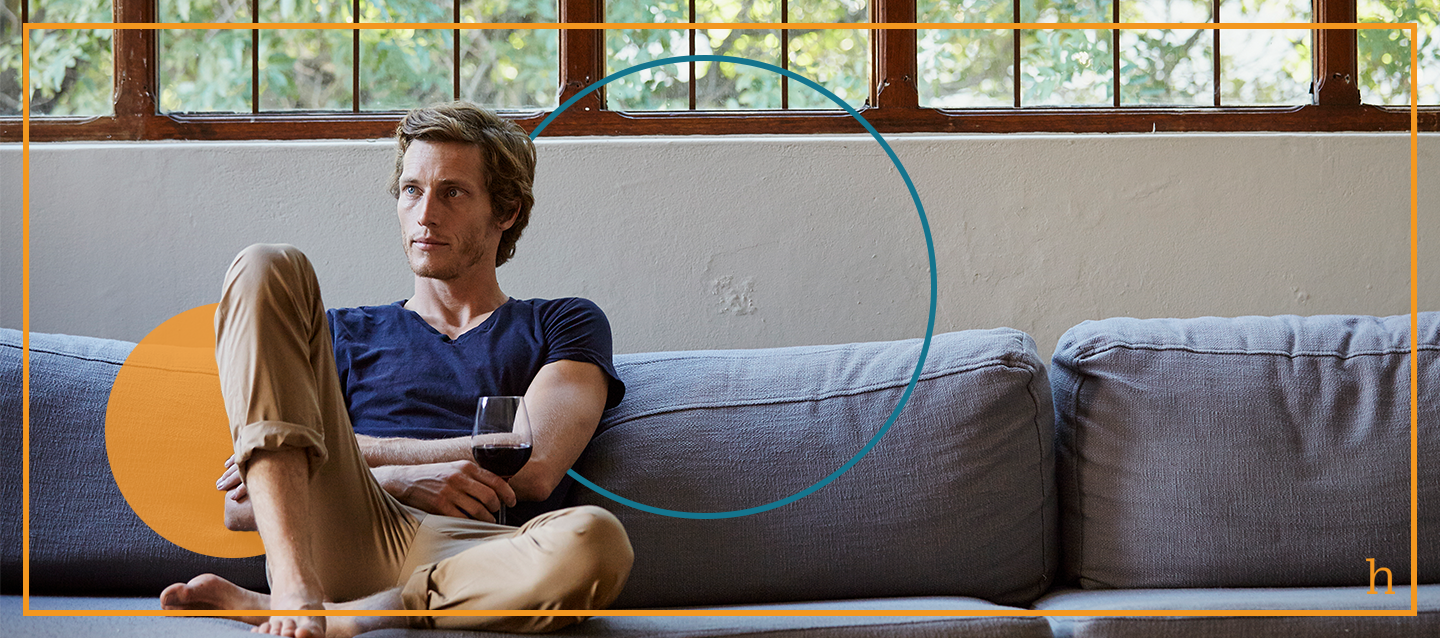"Alcohol is the anesthesia by which we endure the operation of life." ~ George Bernard Shaw
Over the past year, alcohol consumption has gone up.
That's likely a surprise to no one.
As this is the first pandemic most of us have endured, it makes sense. Most, if not all, of us are ill-equipped to handle the sudden loss, uncertainty, and isolation that a pandemic brings. Alcohol is a known quantity; an old friend, a reliable standby, whatever. It is accessible, at the ready.
At the start of the pandemic, it seemed as though "airport rules" applied for most of us regarding drinking: time is irrelevant in this judgment-free zone. We found ourselves drinking to drown feelings and fears. And for the most part, at the start, it worked— until it didn't.
Fast-forward to now. Most of us, I hope, have found our drinking has curbed somewhat. While we may have developed an impressive tolerance, the effects are not quite as satisfying as they once were, particularly when considering the cost/benefit.
Here is the thing: alcohol is not a full-proof solution (pardon the pun). As a self-soothing, self-medicating tactic, alcohol consumption is one of the more popular ones, but it is also the least reliable for the long-term. It may work as a momentary reprieve, but in no way does it afford any level of permanence as a solution to life's ails and woes.
Despite all protestations to the contrary, we cannot drink enough to both stay alive and healthy, while also blocking out our feelings. We are designed as feelings creatures, not thinking creatures. We must learn to name, feel, and allow for the completion of our feelings. Alcohol interrupts our ability to do that, and while that can be nice from time to time, our feelings do not just go away. Put it this way: feelings are a lot like gas: they will come out, one way or another.
So now the question becomes how do we give up the safety and security of a known quantity and press into the underlying feelings? As it is Alcohol Awareness Month, now is as good a time as any to explore how alcohol affects the mind and body while expanding our understanding of the line between alcohol consumption, dependence, and addiction, to figure out the next steps.
Why We Drink
But first, let's address a more pressing concern: if you find that the idea of not drinking is too much to bear or even consider, I want to encourage you to reach out to us. With the right support and cooperative effort, problematic drinking behaviors can be addressed, curbed, and replaced with healthier tactics and behaviors. I honestly 100% believe this. Period.
Most of the clients I have worked with who want to address disruptive drinking behaviors engage in what I describe as misdirected self-soothing/self-medicating or maladaptive coping skills. They do not like how they feel and want to change it. As comfort-seeking creatures, our species drinks to enhance feelings of joy or drown feelings of discomfort; however, according to the numbers, the ride from joy to discomfort, while imbibing, is short-lived. Once the blood alcohol level reaches 0.05 (about two drinks for most people), the mood takes a turn. According to published research, after the initial euphoria sets in, there is a small window of this feeling before the excess consumption of alcohol causes the blood and body tissue to begin absorbing said excess, shifting the euphoria to depression.
As you might imagine, for those already prone to bouts of depression, drinking alcohol will make it harder to get out of the depressive states, despite the euphoria. Additionally, it will interfere with the efficacy of antidepressant medications. For those who are self-medicating symptoms of anxiety, while there will be an initial sense of calm, there will also be a rebound effect of the anxiety, where it will seem more intense and disruptive than if you were not drinking. Further psychological effects may include insomnia, disorientation, and emotional dysregulation. For a full list of the psychological and physical effects of alcohol consumption, you can check out here.
Understanding Addiction
Regarding addiction, there are multiple ways of understanding it. There is the "disease model," which is favored by most healthcare providers and frames addiction as a disease with a heritability component— much like a form of cancer. There is the "social learning" model, which posits that addiction is a learned behavior and can therefore be unlearned with the proper social conditioning. Finally, the "maladaptive coping" model explains that addiction develops as a coping skill gone awry. Regardless of how one understands it, the effects are the same: a cycle of isolation, compulsion, and consumption.
It's important to note that there's a difference between social drinking and problematic drinking. Social drinking has little to no consequences or life-disruptions. Problematic drinking has consequences, life-disruptions, and the start/maintenance of the above cycle on repeat.
When it comes to the treatment of problematic drinking and addiction, the approaches are as varied as the understanding. There are apps to moderate and track drinking behaviors, 12 Step programs and groups, inpatient rehab centers, and prescription medications. Therapy is a powerful tool to use alone or as an enhancement to all the above. If you have questions or concerns about your drinking behaviors, feel free to reach out. We are here to provide a non-judgmental, safe space for exploration and discovery.

